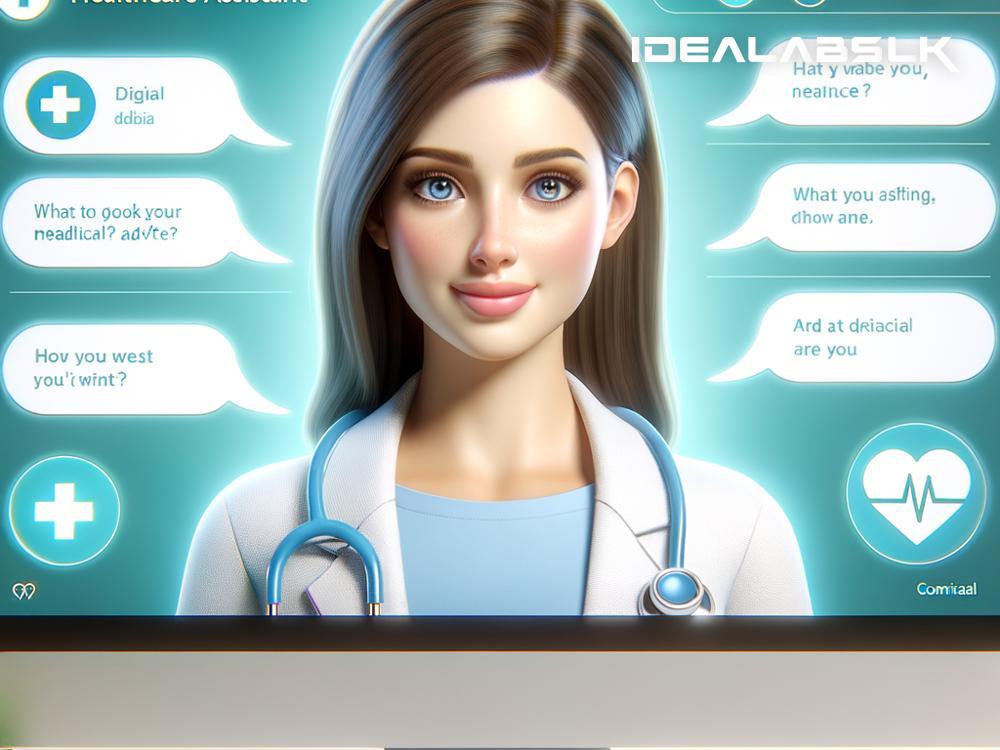Unlocking the Future of Care: How AI Chatbots Work in Healthcare
In the fast-paced world of today, healthcare stands at the forefront of innovation and service delivery. Among the groundbreaking advancements is the emergence of AI chatbots, a technology that seems to have leaped out of sci-fi novels into our very real world. These clever little helpers, powered by Artificial Intelligence (AI), are revolutionizing how care is provided and received. Let’s take a dive into understanding how AI chatbots work in healthcare, breaking it down into simple, bite-sized pieces.
What are AI Chatbots?
Imagine having a 24/7 assistant ready to answer your health questions, book your appointments, or remind you to take your medication. That’s what AI chatbots are like. They are software programs designed to mimic human conversation, learning and improving over time. These virtual assistants use AI to understand and respond to user inquiries, making them an invaluable asset in the healthcare sector.
How Do They Work?
AI chatbots in healthcare work by processing and interpreting the language and questions they receive from users. Here’s a step-by-step look at their operation:
-
Understanding the Question: When you ask a chatbot a question, it uses a component called Natural Language Processing (NLP) to understand not just the words, but the intent behind your question. Think of NLP as the chatbot trying to put itself in your shoes and grasp what you’re really looking for.
-
Finding the Answer: Once the chatbot understands the question, it sifts through a vast database of information to find the most accurate and relevant answer. This database is like a giant library of medical knowledge that the chatbot can access in milliseconds.
-
Learning from Interactions: AI chatbots are always learning. Based on the feedback they receive and the questions asked, they refine their responses to be more helpful in future interactions. It’s like having a medical assistant who gets better and smarter over time.
Benefits of AI Chatbots in Healthcare
The integration of AI chatbots in healthcare brings with it a myriad of benefits:
-
24/7 Availability: Health concerns don’t have a timetable. AI chatbots are always on, providing round-the-clock support to patients, whether it’s a simple query or a reminder to take medication.
-
Immediate Response: In a world where every second counts, waiting for answers can be distressing. Chatbots provide immediate responses, reducing wait times and anxiety.
-
Accessibility: For those living in remote areas, or those with mobility issues, AI chatbots are a game changer, making health-related information and support accessible from the comfort of one's home.
-
Personalized Care: AI chatbots can customize their interactions based on the user’s history and preferences, offering a more personalized and effective healthcare experience.
Applications in the Healthcare Sector
AI chatbots are versatile and can be utilized in various aspects of healthcare:
-
Symptom Checker: They can help assess symptoms and advise whether a visit to a doctor is necessary, potentially easing the load on healthcare systems.
-
Mental Health Support: Chatbots can offer support and counseling for mental health issues, providing a safe space for individuals to seek help.
-
Healthcare Information: They provide a platform for patients to access reliable health information, understand their conditions, and learn about treatment options.
-
Appointment Scheduling: Simplifying the process of booking appointments with healthcare providers, chatbots can save time for both patients and healthcare facilities.
Ethical Considerations and Challenges
While AI chatbots herald a new era of healthcare, they bring with them ethical considerations and challenges. Issues like data privacy, security, and the accuracy of information need to be addressed meticulously. Ensuring these chatbots do not replace human empathy and understanding in healthcare is also crucial.
Looking Forward
As we move forward, the role of AI chatbots in healthcare is only set to grow. With advancements in AI and machine learning, these virtual assistants will become even more capable, offering more nuanced and complex support to patients and healthcare providers alike.
Conclusion
AI chatbots in healthcare are more than just a futuristic concept. They are a present reality, making healthcare more accessible, efficient, and personalized. As technology continues to evolve, the potential of AI chatbots is boundless, promising a healthcare landscape where everyone, regardless of where they are, has access to the support and information they need, when they need it. The future of healthcare is here, and AI chatbots are lighting the way.

